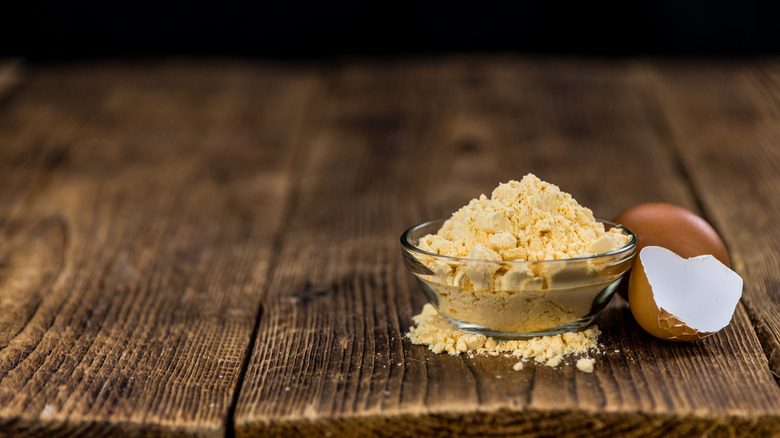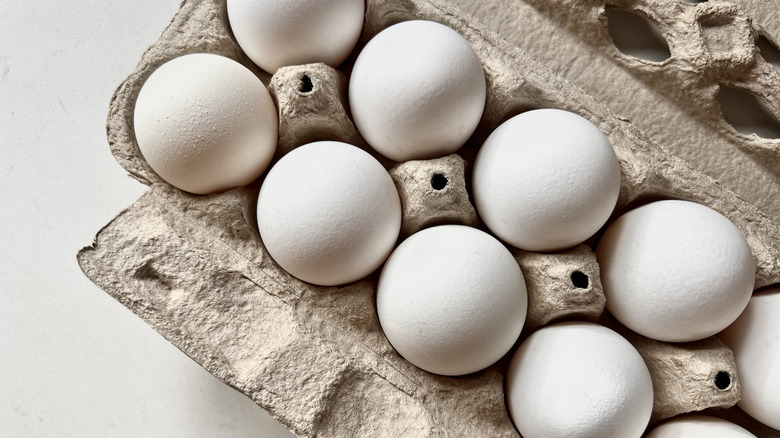Are Powdered Eggs Made From Real Eggs?
We may receive a commission on purchases made from links.
Eggs are a staple on many shoppers' lists due to their prevalence in baking and breakfast dishes. If you are the type to run through a fresh carton every few days, you might have fleetingly turned your attention to a much-misunderstood ingredient: powdered eggs. Often associated with survival situations, powdered eggs might initially seem like a poor substitute for the real thing. What even is that funky yellow powder made of? Rest assured: Powdered eggs are made from real eggs that have been dehydrated and processed into powder.
Unlike whole eggs, dehydrated eggs are shelf-stable if they are kept out of direct sunlight. While even hard-boiled eggs don't last long in the fridge, powdered eggs can get you by when the real thing has expired or is unavailable. Frequently, they're reconstituted with some kind of liquid to cook them up. They aren't going to make the fluffiest scrambled eggs of your life like farm-fresh specimens laid last week, but they work in recipes ranging from cookies to perfectly serviceable omelets. Besides that, learning how powdered eggs are made is a cool lesson in culinary science.
Powdered eggs start with the real thing
Commercially, whole eggs are cracked fresh and then treated to remove all the moisture from them. Once the eggs are dried into a powder, it is pasteurized to keep the product stable and safe from pathogens. Powdered eggs can come in whole-egg form, or you can have just powdered whites or powdered yolks. Obviously, which product you buy depends on what you're using it for; Judee's dried whole egg powder may seem spendy at first glance, for example, but the pouch is good indefinitely — unlike a carton of eggs that must be refrigerated and used quickly. You can also produce dried eggs at home as long as you observe food safety practices.
Powdered eggs were a military staple during World War II, when the American government grappled with the logistic issues of feeding soldiers nutritious, filling meals on the go. Powdered eggs were developed because they were lightweight, (mostly) nonperishable, and easy to carry. Enterprising civilians who can get past the initial weirdness of the product can still reap these same benefits today — think of a hot breakfast while camping!

